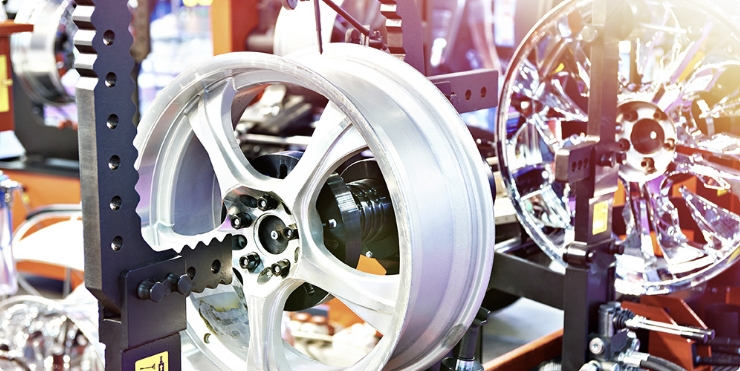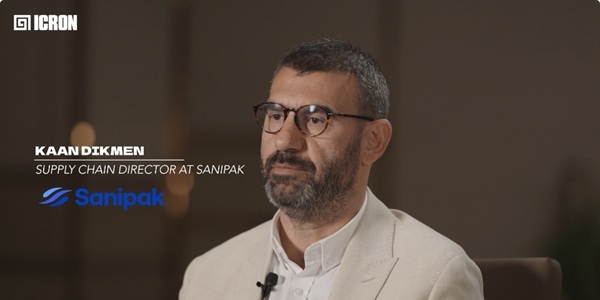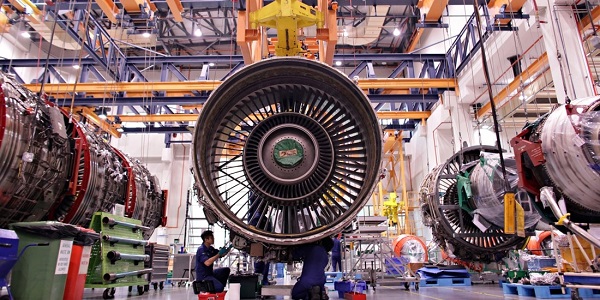
Even the world’s biggest tire manufacturers sometimes hit potholes and bumps in the road when it comes to their production process. Ensuring operations run smoothly and seamlessly throughout the supply chain is vital for these manufacturers to maintain profitability. In the highly complex and fiercely competitive tire manufacturing industry landscape, continually delivering a wide, world-class product portfolio and service excellence are the keys to staying ahead of the competition and driving success.
Brisa – Turkey’s top tire manufacturer and the seventh largest tire producer in Europe – has firmly established itself as a global leader in the tire manufacturing industry. Founded in 1988 as a joint venture between the Bridgestone Corporation of Japan and the Sabanci Group, Brisa manufactures and sells an extensive range of tires in Turkey and internationally under the Bridgestone and Lassa brands. Brisa’s 361,000-square-meter production plant in Kocaeli is the world’s largest tire manufacturing facility under a single roof, and one of the most important manufacturing bases globally for the Bridgestone Corporation.
Challenges
Interestingly, Brisa’s strength – the sheer volume and diversity of its products and customers – presented significant problems from a planning and production perspective. The overall structure of Brisa’s production network comprises three interconnected shops – the end product of one shop becomes the input material of the next. Although these three shops each have their own unique, internal planning and manufacturing processes, they must work in concert to deliver the right products to the right customers at the right time – while also minimizing setup and component transportation times and inventory levels.
But Brisa’s production was not going according to plan because – given the complexity, constraints, and lack of coordination across the company’s operations – it was tremendously difficult for Brisa’s planning department to generate and maintain a viable production schedule. This resulted in frequent interruptions of production at each shop and reduced production capacity utilization and overall efficiency.
Furthermore, in an effort to help simplify the production process, Brisa’s sales department sought to consolidate orders to decrease the diversity of production within planning cycles – but this move was not a satisfactory solution as it in effect reduced Brisa’s competitiveness and ability to cater to the specific demands of individual customers. The crux of the problem was that Brisa’s planning department was employing a combination of manual planning and scheduling tools that were developed in-house. These tools were not up to the task of generating a single, seamless production plan that would streamline and optimize Brisa’s operations, and consequently the company was constantly facing unrealistic due dates and – in some cases – unsatisfied customers.
Solution
In dire need of an all-encompassing, fully-automated Optimized Decision Making solution, Brisa turned to ICRON. ICRON’s Optimized Decision Making solution for tire manufacturers is a robust and flexible platform, which easily integrates with existing systems to provide optimized performance in strategic planning and real-time operations throughout the supply chain including materials control, production operations, finished products warehousing, logistics, and distribution.
After deciding to implement ICRON’s Optimized Decision Making solution, Brisa opened its doors to ICRON’s team of experts, who thoroughly analyzed the logic and functionality of the tire manufacturer’s existing planning system, and integrated the unique elements of that system into ICRON’s Optimized Decision Making solution. Utilizing ICRON’s Graphical Scheduling Algorithm Modeling System (GSAMS) – which combines an extensive library of standard planning algorithms that ICRON has developed over the years with the capability to generate new algorithms – ICRON experts were able to swiftly configure and deploy an adapted, user-friendly platform that provides a 100% fit for all of Brisa’s planning requirements.
The versatile architecture of ICRON’s Optimized Decision Making solution made it possible to take into account the complexities Brisa’s complete production environment in order to:
- Optimize the distinctive planning and scheduling operations of Brisa’s three production shops and
- Coordinate the operations of these separate units to allow optimal, overall collaboration and productivity across the supply chain. ICRON’s platform also enabled Brisa to achieve greater business agility. Brisa’s planning team has gained full visibility and real-time control over all operations, empowering them with the ability to react to the predictably unpredictable fluctuations in demand and supply in the tire manufacturing industry, and rapidly generate optimal plans in any scenario.
Since the implementation ICRON’s Optimized Decision Making solution, Brisa’s entire tire manufacturing process has been transformed; greater production flexibility, productivity, and profitability have been delivered; and other tangible benefits have been realized, including:
- Setup times and inventory levels have been minimized.
- Production capacity utilization has increased by +10 percent.
- The manufacturing department is capable of handling app. 15 percent more diverse orders, and the sales department no longer needs to consolidate orders.
- Operational costs have significantly decreased.
- Customer satisfaction has increased by over 10 percent.
- Sales revenue increased by 5 percent in the first year.













